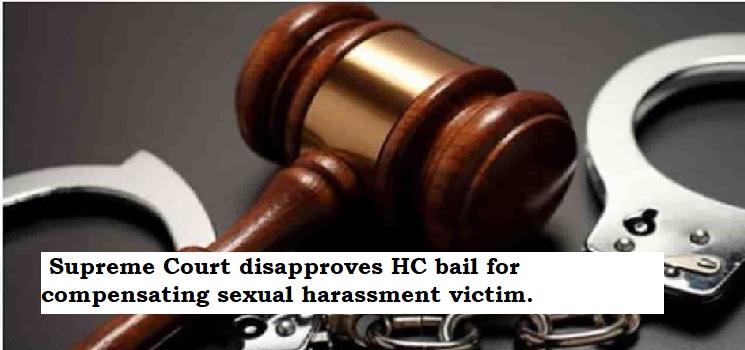


In a significant legal development, the Supreme Court recently addressed the issue of granting anticipatory bail solely based on an accused's willingness to offer interim compensation. The Division Bench, comprising Justices B.R. Gavai and Sandeep Mehta, scrutinized a controversial order from the High Court that had granted anticipatory bail to the accused, deeming it contrary to established legal principles.
The case in question involved the registration of charges against the accused under various provisions of the Indian Penal Code, the Protection of Children from Sexual Offences Act, and the Information Technology Act. The allegations against the accused included outraging the modesty of the first informant and circulating an indecent video on social media. Disturbed by these charges, the accused, now the respondent, approached the High Court of Jharkhand, Ranchi, seeking relief.
Before the High Court, the respondent expressed a willingness to cooperate with the investigation and pledged to pay Rs. 1,00,000/- as ad interim victim compensation to the informant. The High Court, in a concise two-page order, granted bail to the accused, specifying the deposit of the mentioned amount as a condition. Notably, the High Court failed to provide any explicit reasons for its decision.
Assessing the facts and circumstances of the case, the Supreme Court leaned towards granting the privilege of anticipatory bail to the petitioner. According to the court's order, in the event of arrest or surrender within twelve weeks from the order date, the petitioner would be released on bail upon depositing Rs. 1,00,000/- through a demand draft favoring the informant as ad interim victim compensation.
Challenging this order, the State took the matter to the Supreme Court. The bench, upon initial review, deemed the High Court's perspective legally unsustainable. The Court underscored the absence of any discernible grounds on which anticipatory bail was granted by the High Court, criticizing the lack of clarity in its decision-making process.
Despite the victim's acceptance of the compensation amount, the Supreme Court refrained from overturning the impugned order. Instead, the Court directed its Registrar (Judicial) to communicate the order to the High Court's Registrar (Judicial). The latter was instructed to present the order before the Chief Justice of the High Court for appropriate directions.
In essence, the Supreme Court's decision highlighted a critical stance against the indiscriminate granting of anticipatory bail based solely on an accused's offer of compensation. The Court emphasized the necessity of adhering to established legal principles and providing explicit grounds for such decisions. While acknowledging the victim's acceptance of compensation, the Court sought a procedural review by the High Court, urging a more comprehensive and transparent approach in granting anticipatory bail.
This legal episode serves as a reminder of the nuanced considerations involved in balancing the rights of the accused with the interests of justice, particularly in cases of alleged sexual harassment and the dissemination of offensive content on social media platforms. The Supreme Court's intervention underscores the importance of legal scrutiny in maintaining the integrity and fairness of the judicial process.
TAGS: Supreme Court anticipatory bail compensation offer High Court order legal principles harassment case